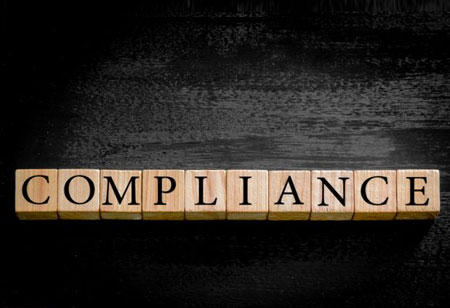THANK YOU FOR SUBSCRIBING

By
Banking CIO Outlook | Monday, September 14, 2020
Stay ahead of the industry with exclusive feature stories on the top companies, expert insights and the latest news delivered straight to your inbox. Subscribe today.
Compliance teams within financial institutions should be able to take quick actions, understand the changing atmosphere, and work on adapting new strategies for a new normal. New processes must involve a thorough analysis of the risks based on the operational, technological, and regulatory alterations in the financial world and an agile method.
Fremont, CA: The impact of the COVID-19 pandemic can be felt across all areas of business. People have been forced to accept a new normal with all new dynamics. The effect can be seen running deep into the financial sector with an impact on both the operational and regulatory side. The limitations of on-site business combined with travel restrictions have made it increasingly challenging to meet the regulators' demands. Ensuring complete compliance in the current atmosphere requires faster, more subtle, and dynamic risk management from financial institutions. This is because disruptions and new risks may emerge rapidly while the already existing ones can turn into actual issues resulting from the operational problems.
Compliance teams within financial institutions should be able to take quick actions, understand the changing atmosphere, and work on adapting new strategies for a new normal. New processes must involve a thorough analysis of the risks based on the operational, technological, and regulatory alterations in the financial world and an agile method to activate the compliance program to successfully manage the risks with an accelerated undertaking of the issue. However, the increased operational burden and pressure on financial institutions and banks make it difficult to ensure the new standard's smooth adoption. This hood is especially true for areas like due diligence checks, as the sources are limited compared to regular times, and the onboarding process of the new customers has to take place remotely. Also, financial institutions have to watch over a large number of transactions every day to ensure that they prevent any financial crimes like money laundering or financing of terrorist activities.
Rebuilding the Compliance Strategy for a Remote Work Environment
With a new normal rapidly transforming all aspects of a business, it is necessary to re-evaluate and concentrate on a financial institution's whole compliance strategy. Banks and other financial institutions need to collaborate with business teams that comprehend the risk profile changes and overall business strategy to ensure that the focus remains on controlling the primary compliance risks. Institutions can also use the mandatory remote working conditions to their advantage by accelerating their digitalization processes like upgrades to electronic communications surveillance. Effectiveness and efficiency can also be improved during this period as it offers an opportunity for improvements in locational strategies.
See also: Top Simulation Solution Companies
THANK YOU FOR SUBSCRIBING
Be first to read the latest tech news, Industry Leader's Insights, and CIO interviews of medium and large enterprises exclusively from Banking CIO Outlook
I agree We use cookies on this website to enhance your user experience. By clicking any link on this page you are giving your consent for us to set cookies. More info



